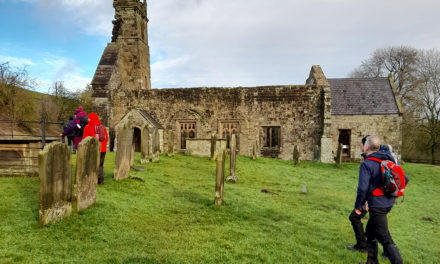The NSPCC believes that no child abuse victim should ever have to face their attacker at court, which is why the children’s charity is today urging people in Durham to sign an e-petition calling for the Government to set up more remote video link sites.
A remote video link site is a designated place away from the court building which young witnesses can give evidence from. However just three police forces in England and Wales – South Wales, Kent and Derbyshire – currently have this facility1.
The children’s charity hopes that the e-petition will attract 21,000 signatures nationally – one for every child who gives evidence in court each year – by 5 September.
The e-petition is just one element of the NSPCC’s recently launched Order in Court campaign, which is aiming to help reduce the distress that children experience when participating in court proceedings. The lack of remote video link sites in England and Wales means that virtually all – 99 per cent2 – of children who give evidence every year still have to do so from court buildings which are not appropriate places for children – especially ones who have experienced abuse.
The NSPCC is writing to all the Police and Crime Commissioners across England and Wales to highlight the urgent need to address the treatment of young victims and witnesses in the criminal justice system and prioritise facilities for these children.
Esther Rantzen, founder of the NSPCC’s ChildLine Service said: “It’s shocking that the majority of child witnesses still have to go to a court building to give evidence, running the risk of seeing their abuser and adding to the trauma they have already experienced. I’m urging everyone in Durham to take a stand and sign the NSPCC’s Order in Court petition to ensure the Government sets up a remote link site in Durham. It is imperative that all child witnesses are given the opportunity to give their evidence remotely so they can get the justice they deserve.”
Fiona Richards, NSPCC regional head of service for the North East, Yorkshire and the Humber, added: Twenty-five years after the landmark Pigot Report, a major Home Office inquiry which recommended that child witnesses should not be required to appear in open court, there are still thousands of child sexual abuse victims being left fearful, unhappy and with thoughts of self-harm after having to give evidence. Attending court can be an intimidating enough experience for an adult, so for a child giving evidence in an abuse case, it must be harrowing and could easily discourage others who have suffered to come forward.”
She continued: “A child who has been sexually abused shouldn’t have to worry about seeing the offender in court. Ensuring that there is a remote site in all regions should help reduce the stress that children can face when they give evidence.”
The need for more remote sites is just one of three changes the Order in Court campaign is calling for, to ensure young people in the justice system are treated first and foremost as children. The others are:
• Compulsory training for lawyers and barristers to prevent ‘brutal’ court cross-examinations.
• Greater access to Registered Intermediaries – trained communications experts – to help them understand what is happening with the police and court whenever necessary










